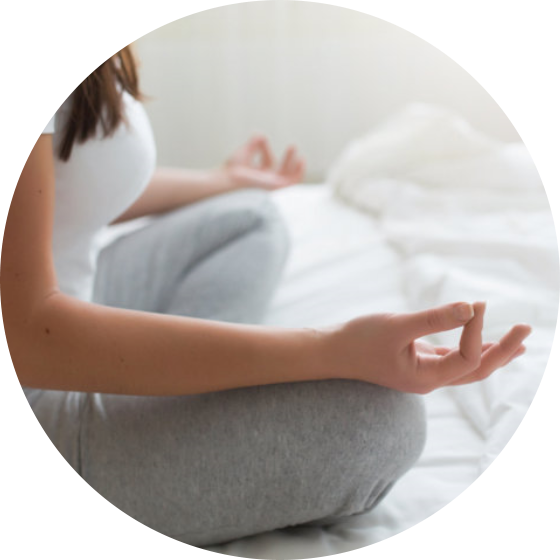Sleep Meditation
Last updated: December 2020
Home > Information & Support > Adults > Sleep Hub >Relaxation can help you overcome the tension and anxiety often felt as a consequence of insomnia. Those experiencing disturbed sleep have trouble unwinding sufficiently to get a good night’s rest, and for many, excessive mental activity and racing thoughts prevent them from getting off to sleep or wake them up frequently or too early. Therefore, it’s important to know how to properly relax and calm the mind.
Meditation is a relaxation technique that has been practised for years. It essentially helps you to relax before bedtime because it lowers the heart rate and encourages slower breathing. Research shows it does improve the quality and efficiency of sleep, makes it easier to fall and also stay asleep.
More people are turning to music and meditation in the quest to get a good night’s sleep. Not only does it help with sleep but is useful in quietening anxiety, easing depression and pain.
There are different forms of mediations from breathing exercise to visualisations.

Try incorporating it into your bedtime routine.
- Pick a quiet spot, ideally the bedroom
- Make sure the bedroom is clutter free
- Wear loose fitting clothing
- Lie flat on your bed, take deep breaths and close your eyes
- Spend 10-15 minutes using either guided meditation or your own
Meditation won’t cure insomnia on its own but can be used safely with other techniques such as cognitive behavioural therapy. You should also use it alongside normal sleep hygiene guidelines to develop habits that are conducive to getting a good night’s sleep.
